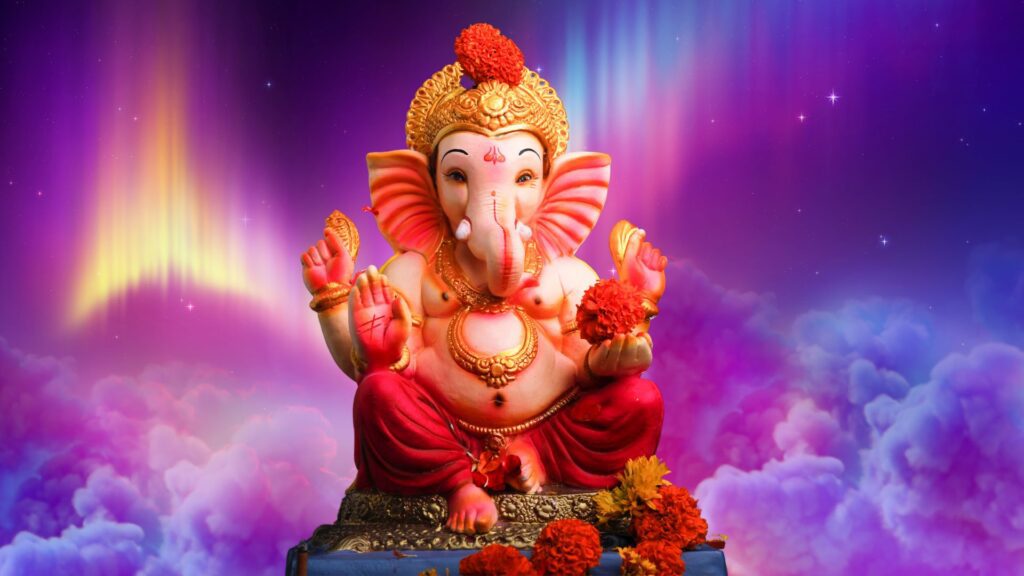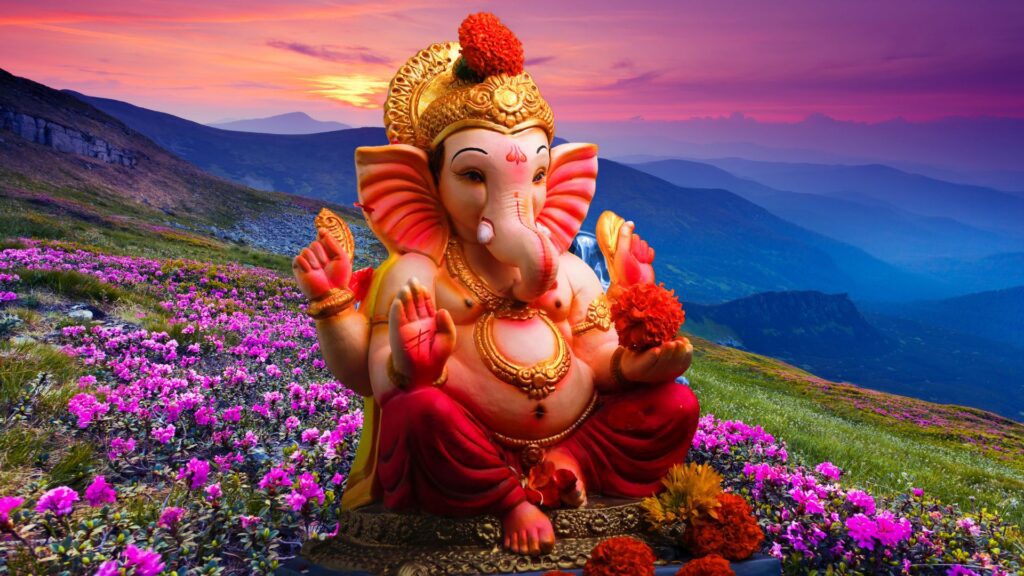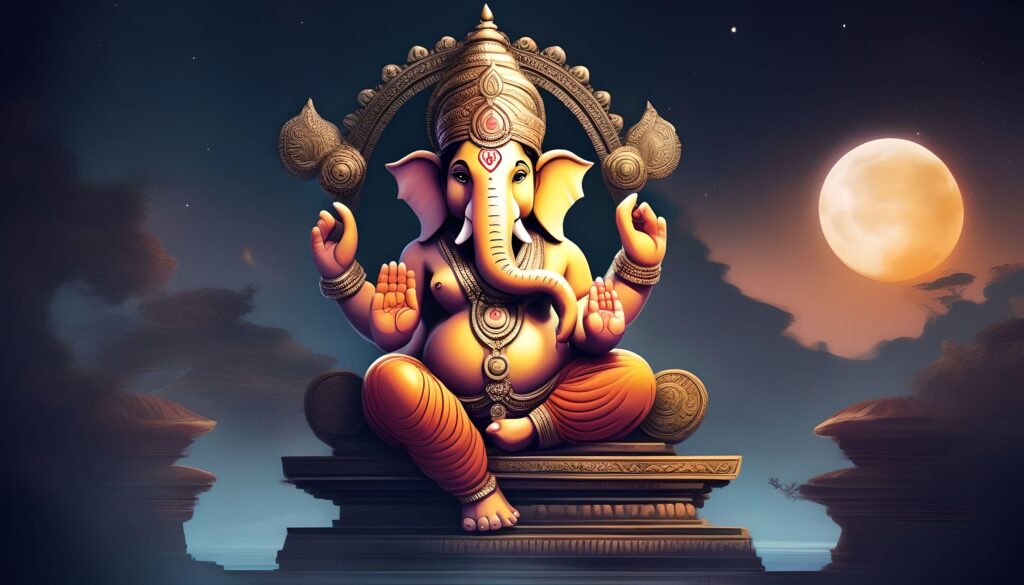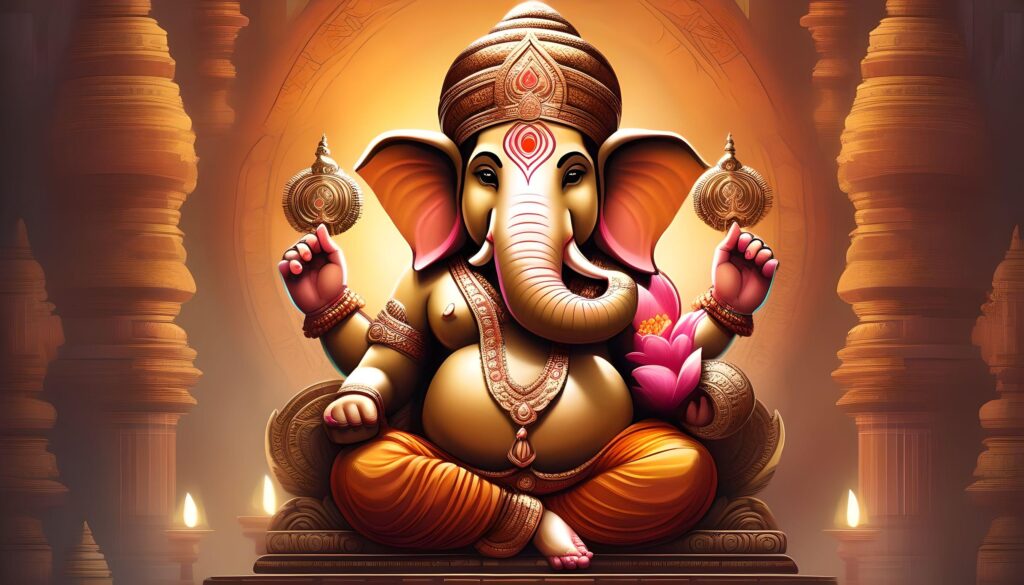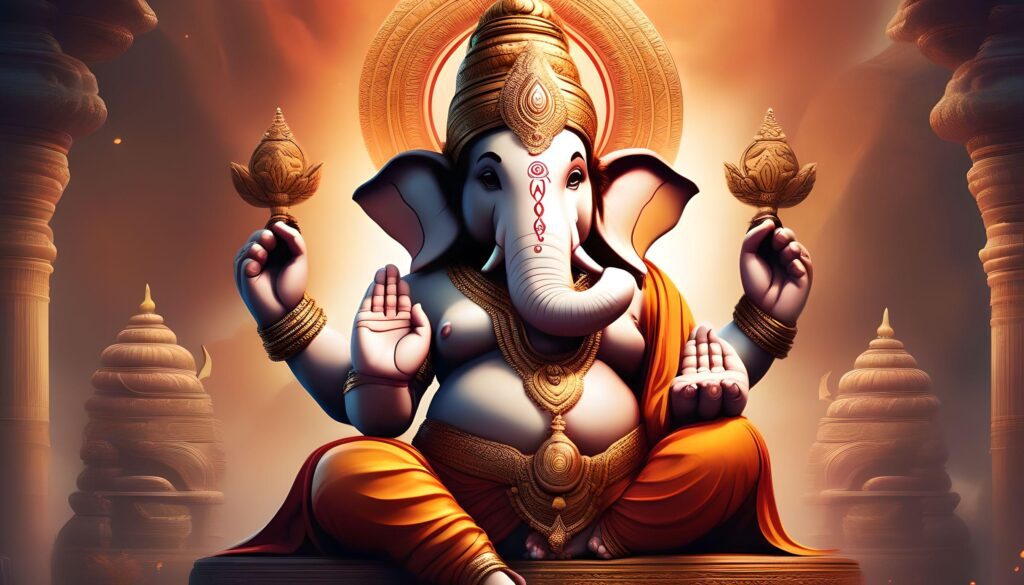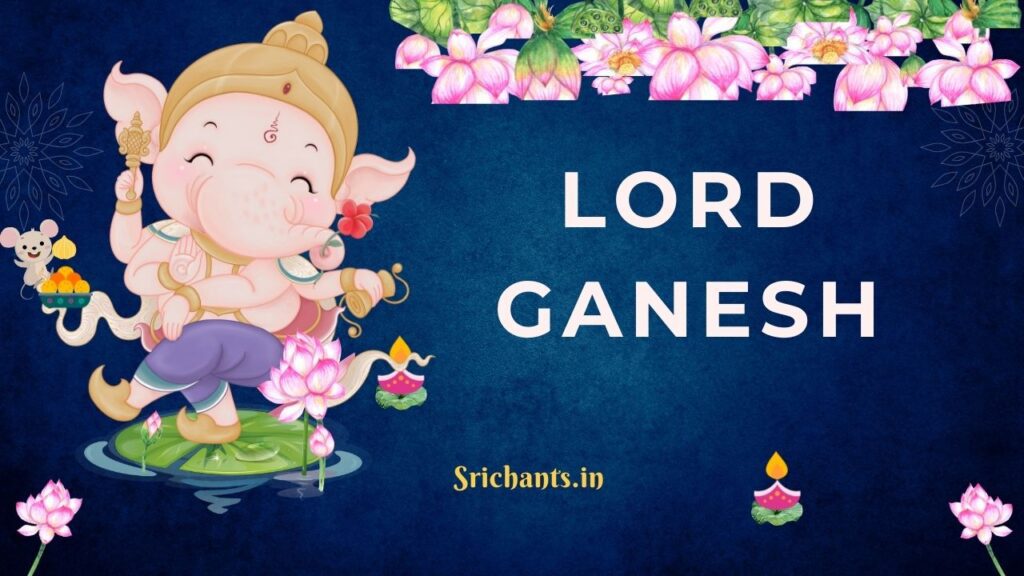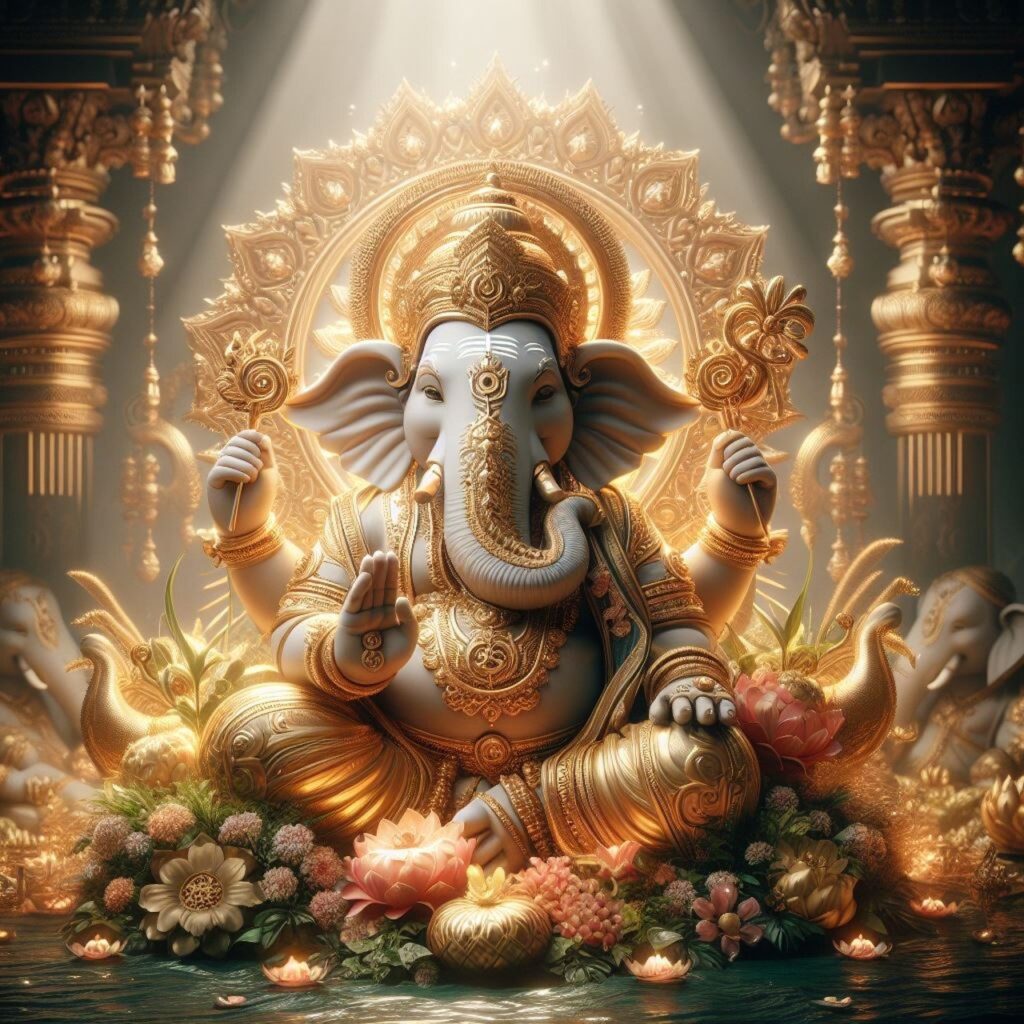About Ganesha : 5 Things You Need to Know About Lord Ganesha
Introduction
Deity Ganapati, alternatively referred to as Vinayaka, occupies a prominent position within the realm of Hindu mythology and spirituality. Ganesh, a deity distinguished by his elephant-headed stature, is held in high esteem as the embodiment of wisdom, knowledge, and the ability to vanquish obstacles. His worldwide renown is evident in the fact that followers seek his approval prior to undertaking novel undertakings or spiritual expeditions. This article aims to examine five pivotal facets of Lord Ganesha that illuminate his cultural significance and impact within the Hindu tradition.
1) The Remover of Obstacles
The universe is frequently compared to a cosmic mechanism in Hindu scriptures, and the various deities are regarded as overseers of this immense creation. Lord Ganesha is widely recognized for his prowess in eliminating impediments. Hindus hold the belief that every significant undertaking, including but not limited to business, matrimony, procreation, and spiritual pursuits, must commence with the solicitation of Ganesha’s benediction. It is believed that his divine intervention will ensure one’s prosperity and clear the way for their endeavors.
Furthermore, on the spiritual journey of the psyche, Lord Ganesha is associated not only with the elimination of external obstacles but also with the surmounting of internal challenges. In pursuit of self-realization, aspiring transcendentalists from around the globe offer prayers to Ganesha in an effort to receive his counsel and assistance. By reciting the mantra “Om Gam Ganapataye Namaha,” devotees seek the assistance of Ganesha in eliminating impediments.

2) The Son of Shiva and Parvati
Although Hindu texts contain numerous accounts regarding the genesis of Lord Ganesha, one of the most prevalent posits that he is the progeny of Goddess Parvati and Lord Shiva. As per one account, the devas (gods) beseeched Shiva for assistance when demons began to harass them. Shiva conceptualized Ganesha and endowed him with a trident and an elephant’s cranium in order to safeguard the devas. Following this, Parvati, the spouse of Shiva, embraced Ganesha as her own and proclaimed that she would venerate him above all other celestial beings.
In an alternative account, Parvati, feeling excluded from Ganesha’s creation, wished for his cranium to be transformed into that of an elephant. This modification represents Parvati’s role in the conception of Ganesha. Irrespective of the diverse narratives surrounding her origin, Ganesha is held in high regard as the cherished progeny of Shiva and Parvati, bestowed with the responsibility of safeguarding and providing counsel to both celestial beings and mortals.
3) The Symbol of Wisdom and Intelligence
Lord Ganesha’s intelligence and sagacity are universally recognized. A narrative from Hindu mythology describes a competition between brother Kartikeya and Ganesha to determine who could complete the earth’s circumambulation the most quickly. Ganesha, in contrast to Kartikeya, elected to encircle their parents, Shiva and Parvati, as she took flight. Ganesha humbly explained that he abstained from the contest because he acknowledged the divine presence of his parents and regarded them as the epicenter of creation. By performing this act of reverence and sagacity, Ganesha obtained the title of victor.
The account of Ganesha encoding the Mahabharata serves as an additional demonstration of his intellectual acumen. In composing the epic, the sage Vyasa beseeched Ganesha for aid in the composition of the verses. Ganesha consented, albeit with the stipulation that Vyasa narrate the complete narrative without any pause. Vyasa conceded, but in response, challenged Ganesha to comprehend the fundamental nature of every stanza prior to committing it to paper. The culmination of this partnership between Vyasa and Ganesha was the composition of the Mahabharata, a monumental epic in India.
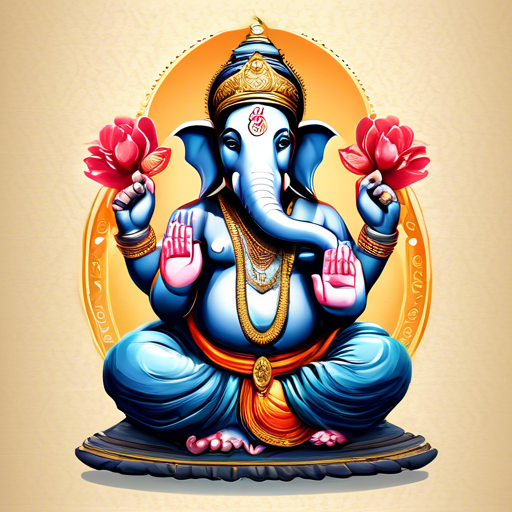
4) Symbolic Meanings of Ganesha’s Form and Sacred Symbols
In Hinduism, the distinctive form and sacrosanct symbols of Lord Ganesha have profound spiritual significance. The elephant cranium symbolizes sagacity, comprehension, and the capacity to coexist harmoniously with the natural world. The immense belly of Ganesha serves as a representation of the cosmos, mirroring its immensity. The energy that binds the universe together is symbolized by the serpent entwined with his waist, whereas the mouse he rides represents the command of an aimless intellect via knowledge.
Each of Ganesha’s four limbs holds a substantial object. The axe symbolizes the ability to sever emotional ties and eradicate longings that impede one’s spiritual development. The rope represents an individual’s capacity to be drawn toward their most elevated aspirations. Individuals who live a spiritual and disciplined existence are rewarded with the sweet in his hand. Finally, those who walk the path of spirituality are bestowed with protection and favors when the hand is raised with the palm facing outward.
5) Festivals and Worship
Annually, on the occasion of Lord Ganesha’s birth, a ten-day festival known as Ganesha Chaturthi is observed. Exceptional clay idols of Ganesha are crafted by devotees and venerated with tremendous fervor and devotion. Participating in the festival are spirited processions, devotional song supplications, and the immersion of the idol in water to conclude the festivities.
Throughout the year, Ganesha is venerated on numerous other occasions and festivals besides Ganesha Chaturthi. Prior to undertaking new endeavors, performing significant rituals, or embarking on spiritual journeys, devotees seek his benediction. Those who venerate Ganesha with sincerity are said to be blessed with success, wisdom, and prosperity in her presence.
Conclusion
Considered a paragon of wisdom and the remover of obstacles, Lord Ganesha occupies an important position in Hindu mythology and spirituality. His symbolic significance and unique physical attributes render him a revered deity venerated by millions across the globe. Ganesha continues to motivate and direct individuals on their spiritual quests by means of his narratives and celebrations, serving as a constant reminder of the significance of sagacity, veneration, and determination in surmounting challenges and attaining prosperity. Devotees continue to venerate and imitate Lord Ganesha as an enduring and revered presence within Hindu culture.
#ganesh #about #aboutganesha #aboutganesh


